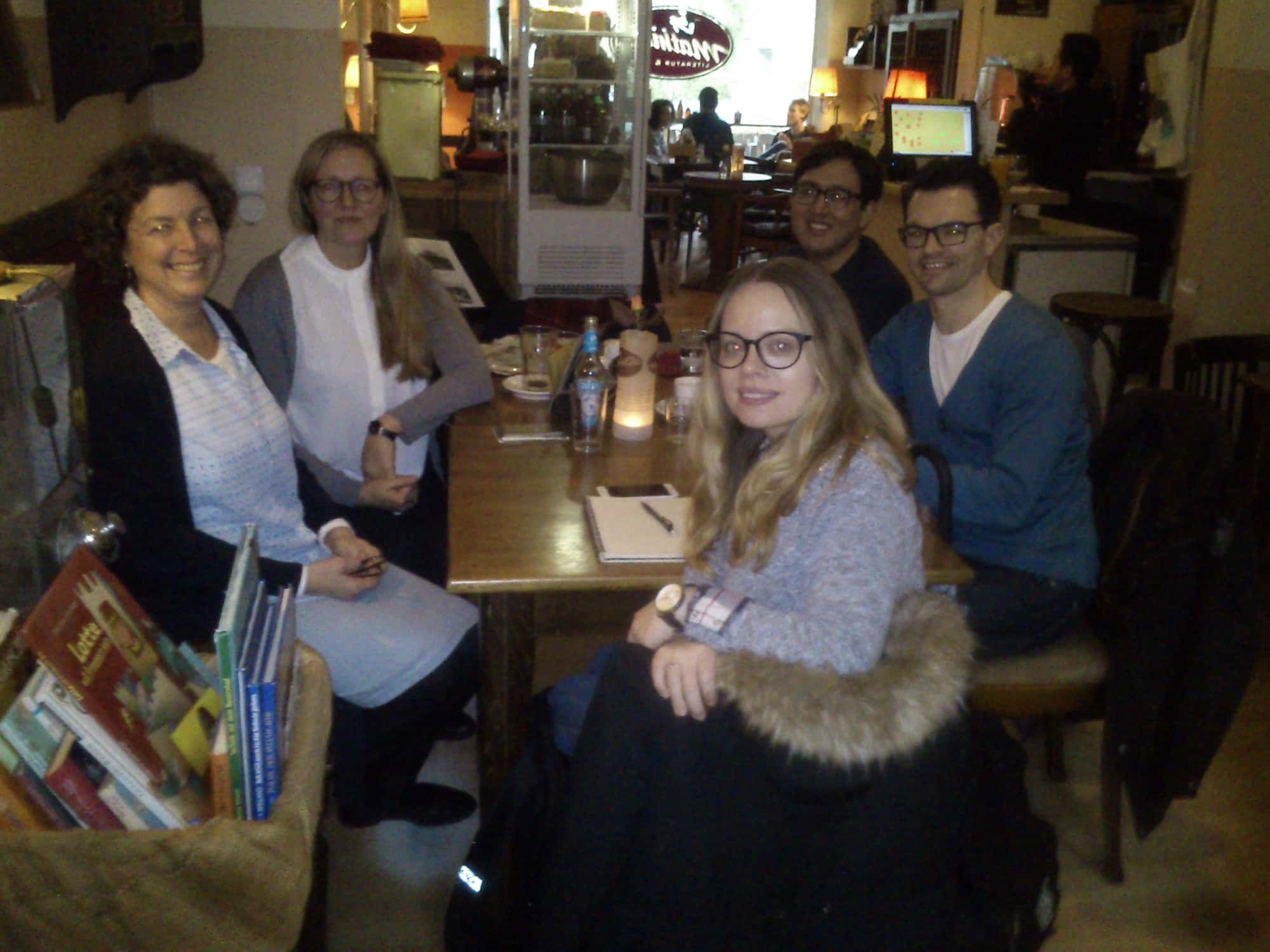By Arlie Russell Hochschild
Discussed by the Hamburg Chapter Book Club, 10 March, 2018
ANGER AND MOURNING ON THE AMERICAN RIGHT, A JOURNEY INTO THE HEART OF OUR POLITICAL DIVIDE
Sociologist Arlie Russell Hochschild set out to explain what she calls the “Great Paradox”—why people vote against their own best interests—in this case, supporting Republican politicians while repudiating the Environmental Protection Agency. Her choice of Louisiana was predicated on the fact that it ranked 49th on a recent human development index of all the states, yet boasted the largest number of Tea Party representatives in Congress. Limiting her study to environmental issues also made sense as the state exhibited one of the highest levels of pollution in the country, yet the greatest resistance to regulating those responsible. Her research aimed to find out if it was possible “to know others from the inside, to see reality through their eyes, to understand the links between life, feeling, and politics; that is, to cross the empathy wall?”
We all agreed that she succeeded, and most of us read her book with optimism, wanting to give it a try as well. For five years Hochschild LISTENED, and her encounters are presented as a series of themed stories of individuals, ending with a huge fact checking appendix offering a contrast to the deeply felt beliefs she recorded.
“POLLUTION IS THE SACRIFICE WE MAKE FOR CAPITALISM.” The American Dream plays an outsized role in these stories, as does a belief that hard work should be rewarded, not only in the afterlife, but also with all the material trappings they long for now. In contrast to liberals who tend to resent the upper 1% of the wealthiest, Tea Party supporters admire the super-rich who they feel have been blessed from above. Furthermore, they have convinced themselves that they are faced with an either/or situation: “You can´t have both the oil industry and clean lakes.” Despite extraordinary loss of life and property, they remain loyal to the petrochemical plants which are literally killing them, because they provide the jobs that enable them to ascend the class ladder too. As for capitalism, “What else, besides family and church, was there worth feeling loyalty to?” asked one woman. Needless to say, our group came up with another version of the American dream including feeling safe, access to a good education, not having to worry about health care, and the freedom of each individual to seek happiness in their own way.
Also enlightening, Hochschild details the absolute derision these Tea Party supporters have for those who accept government help (food stamps, unemployment benefits, even health care) regardless of the circumstances. To clarify, she presents an interesting construct that helps us understand their lack of empathy—cutting in line. With their emphasis on the American Dream, and their belief that their hard work and lifelong sacrifices on the altar of capitalism entitled them to be near the front of the line when rewards are distributed, they became disillusioned by developments starting at the end of the 1960´s with the rise of identity politics, the cosmopolitan middle class, and an “undeclared class war.” They felt short-changed and ever more resentful of those who they saw as cutting in front of them in line, not to mention the liberal policies that enabled them. They felt like strangers in their own land.
“THE IDENTITY POLITICS CANDIDATE FOR WHITE MEN” Small wonder that the candidacy of Trump captured not only their imagination but their votes! The book ends as Hochschild attends a campaign rally of joyous hedonism conservative style—a release from the constraints of political correctness—where the candidate on stage gave voice to all their unspoken feelings and cultural yearnings. He promised to make them great again.
“SYMPATHY FATIGUE” Perhaps the biggest surprise was that conservatives were not only keenly aware of their reputation among liberals , at least in a stereotypical way, but many were at pains to insist that they were not bad people just because they did not feel sorry for immigrants or the underprivileged, for example. On the other hand, they resented what they described as being told how to feel, as well being looked down upon and ridiculed by liberals. Perhaps this is an opening for us, and we could at least feel satisfied that we are trying to bridge the divide by reading this book. The optimists among us were a bit deflated though, by the fact that even Hochschild hardly managed to budge any of her subjects politically, although in the end, she did count them all as friends.
By coincidence, on the very day the book club met, the New York Times printed a story which provides an up to date account of the tragic story of environmental degradation in Louisiana: https://www.nytimes.com/interactive/2018/02/24/us/jean-lafitte-floodwaters.html

Please join us on 21 April when Book Club members journey to Berlin and meet up with fellow Democrats to visit the Topographie des Terrors, after reading On Tyranny: Twenty Lessons from the Twentieth Century, by Timothy Snyder. More details to follow.
Text and Photo by Maryann Schmunk


